Information and Tips for Tourists to Israel
Today will answer the most common questions tourists to Israel have (including safety, passports, weather, currency, tipping, electricity, and much more). And if you have not found an answer to your question, leave a comment below.
Let’s start with the most popular question.
Table of Contents
- 1 Is It Safe to Visit Israel?
- 2 Does Israel Stamp Passports?
- 3 Language
- 4 Weather
- 5 Holidays
- 6 Useful Items to Bring Along
- 7 Currency
- 8 Prices in Israel
- 9 Tipping
- 10 How to Travel Israel On a Budget?
- 11 What are The Best Things to Buy in Israel?
- 12 Electricity
- 13 Wi-Fi and Internet
- 14 Useful Apps
- 15 Transportation
- 16 Tours In Israel
- 17 Scams in Israel
- 18 Can you Travel from Israel to Jordan?
- 19 Where to Travel in Israel?
Is It Safe to Visit Israel?
The short answer is yes. I feel perfectly safe, and there are no restrictions. As a kid, I could hang out with friends outside at night. And today, the situation is the same. My house is in front of a park, and I often see children (10 – 12 years old) at 10 pm playing there.
But I might be biased since I live here. Thus I will back up my answer to “Is Israel Safe To Travel To” with statistics (“There are three kinds of lies: lies, damned lies, and statistics.” 😉 ).
UNODC murder rates: murders per 100,000 inhabitants of selected countries (source: Wikipedia).
| Country | Rate |
|---|---|
| Egypt | 2.51 |
| Mexico | 19.26 |
| United States | 5.35 |
| Japan | 0.28 |
| Israel | 1.36 |
| Jordan | 1.55 |
| Russia | 10.82 |
| Sweden | 1.08 |
| United Kingdom | 1.20 |
| France | 1.35 |
| Germany | 1.18 |
If you look only at those numbers, the requested conclusion is: if you think France (which has the closest rate) is safe, then so is Israel. But you should keep in mind that this rate has grey areas. For example, killings caused by a non-international armed conflict may or may not be included, depending on the intensity of hostilities and whether it is classified as ‘civil unrest’ or a clash between organized armed groups. Nonetheless, I do not think including or excluding terrorist attacks in Israel will significantly affect them.
Moreover, the rate is average. And even in a small country like Israel, these numbers significantly vary depending on the area.
Is It Safe For a Woman to Travel Alone?
The answer is the same as the previous question: it is safe for a woman to travel alone in Israel. Of course, you should use common sense and not do things you usually would not. The only restriction that comes to mind is dressing modestly when visiting holy sites and religious places.
Is it Safe to Travel to Palestine?
Though this question is frequently asked, we should divide it. Palestine has two different geographic locations: West Bank and Gaza. Traveling to West Bank is relatively safe, but you are less prone to scams (we will touch on this subject later). However, the situation might get uncomfortable if they think you are a Jew or an Israeli. Therefore, I would advise pre-booking a tour to the West Bank.
Traveling to Gaza is dangerous, and IDF will stop you for your own safety. Moreover, since Palestinians tend to shoot mortars and other rockets, I suggest keeping a distance of at least 10 km from the Gaza strip.
Does Israel Stamp Passports?
The short answer is no, but the full answer is not simple.
You cannot enter some countries with an Israeli stamp. As far as I know, there are sixteen countries, like Algeria, Bangladesh, Iran, and Kuwait. Thus, by default, Israel stopped stamping passports and gave you a paper card instead. You should keep this paper card, which serves as your visa, until the end of your journey, as you might need it in various situations.
But when traveling to nearby countries like Jordan and Egypt, they can stamp your passport. This stamp will make it clear where you have been. In most cases, you can ask not to stamp your passport, and they will stamp a piece of paper instead.
Thus, if it is essential to you, always ask not to stamp your passport.
Language
The Israeli population is a linguistically and culturally diverse community. Hebrew is the official language. And since English is mandatory at schools, most people know it to some extent. Other languages are less common. But if you know English, you should have no problem getting around.
According to a 2011 Government Social Survey of Israelis over 20 years of age, 49% report Hebrew as their native language, Arabic 18%, Russian 15%, Yiddish 2%, French 2%, English 2%, 1.6% Spanish, and 10% other languages (including Romanian, German and Amharic, which were not offered as answers by the survey). This study also noted that 90% of Jews and over 60% of Arabs have a good understanding of Hebrew.
Source: Wikipedia
Also, I should mention that most signs, including road signs and signs in tourist areas (including National Parks), are in Hebrew, English, and Arabic.
And if you want to learn some Hebrew, here are 100 basic Hebrew phrases.
Weather
The weather in Israel tends to be hot during the Summer and rainy in winter. Usually, the temperatures will be between 15 – 35 C around the year in most places. Thus you can travel all year round if you do not mind getting wet (usually from sweat, but sometimes from rain).
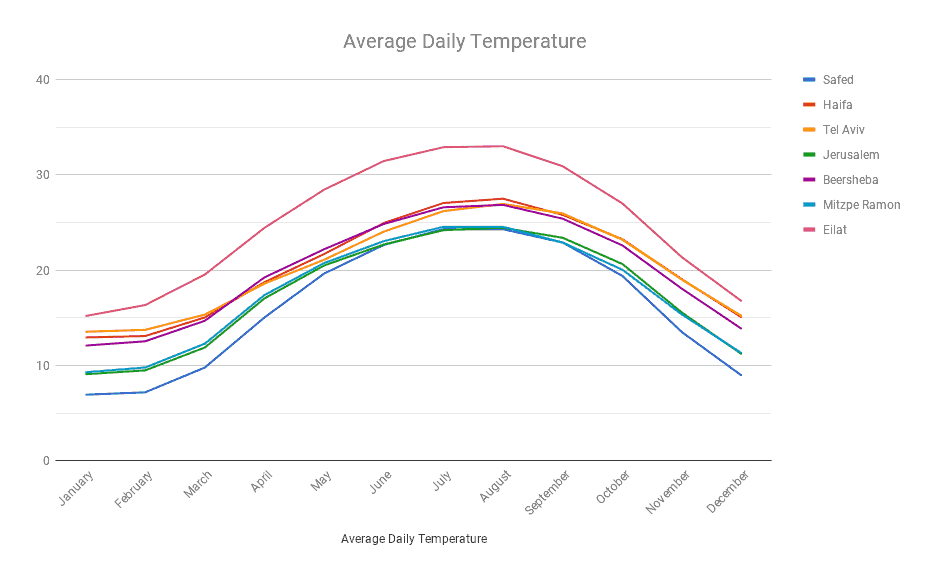
Since overall it is hot, there are air conditioners everywhere. Not only in cars (which are obligated by law) but also in all public transportation and public building. It is hard to imagine hotels or flats without air conditioners, but better verify it before booking.
What is The Best Month To Visit Israel?
If we consider only weather, March, April, and May would be my top priority. September and October are the second priority.
If you want a more in-depth answer, check out this post. Also, check out the festivals and events mentioned in that post.
Holidays
The moon calendar determines the dates of Jewish holidays. Thus, the specific times vary relative to the Gregorian calendar. Here is a link to a list of all Israeli holidays and their dates.
Regarding holidays, the main question is whether they should matter. And the answer is yes. On the one hand, during the Israeli holidays, the prices of hotels and apartments will go up. Moreover, all attractions will be busy. On the other hand, there will be more events and festivals. Thus, if you are not interested in a specific event, I advise you not to visit during the long holidays, such as Passover, Sukkot, and Hanukkah.
Useful Items to Bring Along
In this section, we will go over the non-standard things that you should consider taking along on your trip to Israel. I will not mention all the basics. And instead, I will suggest only the items you might typically leave home.
Israel is a hot country. And you could be easily burned by the sun even during wintertime. Thus, the first item I want to mention is sunscreen. Take sunscreen with high SPF numbers (like SPF 30 and even 50). Moreover, take a hat and always drink a lot of water.
As long as we are talking about weather-related items, take a light rain jacket if you visit during the rainy season, and always bring insect repellors (just in case).
An additional item you should consider is a beach mat (you can rent beds and umbrellas, but they will cost around five dollars each).
And for those coming from America, you will probably need a converter that will change the electric current from 110 volts to 220 volts. See additional information in the Electricity section.
Clothes
Most likely, you will be walking a lot. Thus comfortable shoes and clothes are a must. But before we get to the specifics, I want to mention clothing in general.
Dress-code In Israel
The general dress code in Israel is casual and comfortable. Most men wear T-shirts, jeans, or shorts and a polo shirt. They dress up a little when going out, but suits are rare. If you see somebody in a suit, he is probably a lawyer or a salesperson. In most cases, women wear casual pants and T-shirts or pack a lightweight dress and a nice blouse for going out. When it comes to footwear, many wear sneakers, sandals, and even flip-flops (they are especially useful if you hit the beach).
Thus, leave the suits and evening dresses behind.
After understanding that casual clothes are the ones you will be using, I want to dive a little further and mention an additional clothing category.
Modest Clothing
Visiting religious sites (a synagogue, church, or mosque) will require modest clothing. There are two main points that you should remember: knees and shoulders.
My wife usually takes on a scarf. There are lightweight scarfs that can open up and cover significant parts of your body. You can always buy them in the local markets, like the Jerusalem Old City market, but it is better to bring them along if you have one. And before entering a religious site, she can put the scarf over the head and the shoulders. In any case, the shoulders should be covered. Thus tanks, vests, and shoulderless dresses will not do. And, of course, dresses should be without a deep neckline.
When it comes to the length of the shorts for men or dresses and skirts for women, then in both cases, it should go below the knees.
Currency
The currency in Israel is NIS – New Israeli Shekel. Or more commonly known as Shekel. And 1 Shekel equals 100 Agorot.
Though in the next photo, there are coins from different countries, you can also see coins of 10 NIS, 5 NIS, and 10 Agorot.
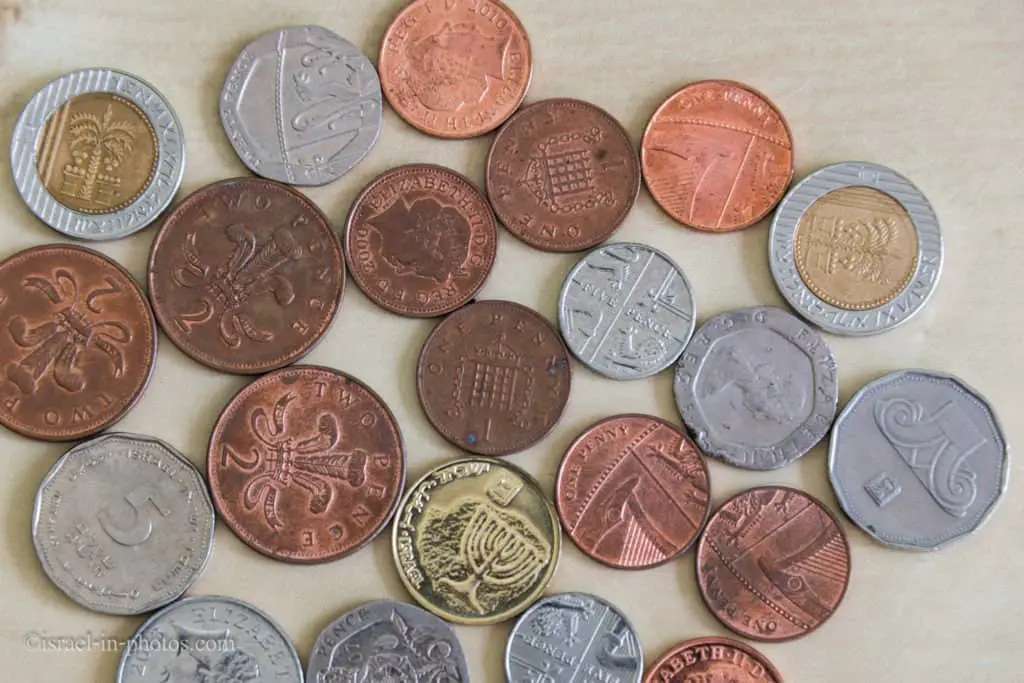
Several years ago, series C banknotes were introduced, but series B banknotes are still in use. You can see photos of all notes and coins here.
Though exchange rates change, as of January 2019, 1 US Dollar equals 3.7 NIS, and 1 Euro equals 4.28 NIS.
Credit Cards
Credit cards are widely used in Israel. I keep some cash for two scenarios, tips in restaurants and small purchases (because of the commissions paid to credit firms, many business owners accept credit cards only when purchasing for 25 NIS or more). But, there is no problem paying cash, at least for moderate payments (see The Law for the Reduction of Cash Use in the next section).
The Knesset approved the law for the Reduction of Cash Use in March 2018. It is intended to limit the use of cash to reduce black capital and combat money laundering, tax evasion, financing of terrorism, etc. If a transaction exceeds 11,000 NIS, the business is prohibited from paying or receiving the payment (in cash) of more than 10% of the transaction price or NIS 11,000, whichever is lower.
While we are on the subject of credit cards, I should mention that Diners and American Express are less prevalent in Israel, and some businesses do not accept them.
Currency Exchange
I would advise holding some Shekels before arriving in Israel. Other currencies are not accepted (besides maybe the most touristic spots). Once in Israel, you can exchange currencies at the Israeli post office (Foreign Currency Exchange Rates) or exchange bureaus. Some people also withdraw cash from ATMs or exchange money at banks. When traveling abroad, I exchange money at licensed exchange bureaus, as they typically have the best rates.
Prices in Israel
Israel is not cheap. It is a shock for many tourists since all the neighboring are less expensive. But, you should know Israeli economics differs from that typical Middle Eastern country. The average monthly salary for 2018 was 10,395 NIS, roughly 2,500 euros. And when I was looking for the average wage across the European countries, I stumbled upon a 2013 study that cited 1,916 euros per month. The average salary does not fully explain the price level, but I would mention that many Israelis travel to the USA and Western Europe predominantly for shopping. Therefore, in my opinion, the only things you should check are unique items and souvenirs (see: “What Are The Best Things To Buy In Israel?” section for additional info).
Typical Fares
Lodging
A standard hotel room per couple for one night will usually start at 600 NIS (these are rare finds) and can easily reach several thousand Shekels for boutique hotels. In most places, the average room fare is 800 – 1,500 NIS.
Food
Overall, food is expensive in Israel.
- A meal at a mid-range restaurant Restaurant per person 60 – 120 NIS
- A snack and a drink (street food) – 30 – 50 NIS
- Beer (0.5 liter) at a pub/restaurant 20 – 35 NIS
- Water (0.33 liter) – 10 NIS. And a six-pack of 2-liter bottles at a supermarket costs 10-12 NIS.
Transportation
- One-way bus ticket within a city is around 6 NIS.
- Taxi price per 1 kilometer is around 4 NIS, and 90 NIS for a one-hour drive.
Tipping
The accepted tip in restaurants is 10 – 15% of the bills. As per other areas, like porters and other hotel staff, there is no accepted standard. Taxi drivers are usually not tipped.
How to Travel Israel On a Budget?
Using the Pareto principle, we will go over the most expensive components of a trip to Israel.
- Flights – most flights to Israel reach Ben Gurion (TLV) airport. Recently Ovda Airport, not far from Eilat, was opened. Many European low-cost companies fly to Ovda Airport. Thus, check flights that reach all airports in Israel.
- Lodging – hotels in Israel are expensive. Usually, a cheaper solution would be renting an apartment (Airbnb and Booking.com are both popular in Israel). Another option would be booking a private room in a hostel. And the cheapest solution is camping. Though this option is not relevant to the major cities, you will see that some National Parks offer camping options when visiting nature.
- Food – prices in restaurants and cafes can be steep. One alternative would be street food. This budget option is widespread, and the variety of street food is quite broad. Falafel, Hummus, Shawarma, Msabbaha, Bourekas, Khachapuri, Shakshouka, and Sabich are just some of the options.
- Attractions – entry fees to many attractions can be quite expensive. But, if you plan and look for coupons and deals online, you can save up to 50%.
And one additional important tip that is correct for all countries is: to travel off-season and avoid the holidays.
What are The Best Things to Buy in Israel?
- Dead sea products include a wide range of beauty products. Ahava produces these items, and you can find them at the Dead Sea and in malls across Israel.
- Spices – you can find a wide variety of herbs and spices in Israel. Many tourists love purchasing them, but before doing so, you need to check whether you will be allowed to enter with them to the origin country. Read on Herbs And Spices In Israel for additional info.
As long we are on this topic, I want to mention that some people love to take Halva, Tahini, Hummus, Dates, and Date honey with them. Though they are delicious, they are also heavier than spices. So, beware of your weight limit. - Jewelry – diamond Industry is developed in Israel, but not only it. You can also find jewelry made of semi-precious, silver, gold, copper, brass, Roman glass, Eilat stone, and others. There are many chains and stand-alone stores. You can find them in the malls in all major cities.
- Handcrafts – you can find a lot of unique handmade items in Israel. Whether it is ceramics (Israeli and Armenian), pottery, Hamsa made of different materials, Judaica items, Bedouin handicrafts, Metalace, and many others. The most popular places to buy jewelry and crafts are the Cardo in the Old City of Jerusalem, Mamilla mall in Jerusalem, numerous galleries at Old Jaffa, Nachalat Binyamin Market in Tel Aviv, Ein Hod, and Safed.
- Wine and olive oil have been produced in Israel since biblical times. I am not suggesting purchasing products made by big brands, but instead, visiting a boutique producer and joining the activity there. Here are, for example, our visits to the Dvorat HaTavor Visitor center and Olives Picking At Galili Olive Oil.
Wine is made not only from grapes. And a unique option would be purchasing pomegranate wine.
Some tourists love purchasing Antiquities. I am not an archeology professor, and my ability to differentiate between fake and real is nonexistent. And there are many fake antiquities (see “Scams In Israel” section). Thus, unless you have extensive knowledge of Archeology, I suggest keeping away from it. Or at least not spending too much money on it.
Electricity
Voltage Converter
In Israel the standard voltage is 230 V, and the frequency is 50 Hz. You can use your electric appliances in Israel if the standard voltage in your country is in between 220 – 240 V (as is in the UK, Europe, Australia and most of Asia and Africa). Manufacturers take these small deviations into account. If the standard voltage in your country is in the range of 100 V – 127 V (as is in the US, Canada, and most South American countries), you need a voltage converter in Israel. You can also consider a combined power plug adapter/voltage converter.
Source: power-plugs-sockets.com
Thus if you are coming from North or South America, you will most likely need a voltage converter and a travel adapter. Otherwise, you might need just a travel plug.
Many modern devices, such as phone chargers, support both voltages. Thus, if you see a sticker that says “Input: 100-240V”, then you do not need a voltage converter for it.
Travel Adapter
In Israel, you can find several different socket types. According to the International Electrotechnical Commission, Israel uses Plug Types C, H, and M.
Here is a snapshot of a plug from my home:

When traveling abroad, I always take a travel adapter, just in case. And since there are different plug types in Israel, I would advise you to do the same. Travel adapters are small and can save the day.
Wi-Fi and Internet
In my travels, I always use the internet. My main usages are navigation and checking reviews of cafes and restaurants (attractions are usually pre-planned). Thus, if you will be renting a car, I would advise purchasing either a SIM card with mobile internet or renting a phone. And in case you will be visiting only the big cities, then the mobile internet will still be useful, but you can do without it as there are many free Wi-Fi hotspots.
Free Wi-Fi
Many museums and municipalities offer free Wi-Fi. For example, several years ago, Tel-Aviv created 80 access points across the city. The network is called “FREE TLV Wi-Fi,” and you can find the location of all access points here (street names are in Hebrew).
Various businesses also offer free Wi-Fi. Many cafes, restaurants, malls, gas stations, and even public transportation (trains and buses) have free Wi-Fi. When it comes to hotels, then the situation is worse. Many offer free Wi-Fi only in the lobby, and if you want Wi-Fi in the room, it is for an extra fee. And in some cases, the additional cost is too expensive. It would be cheaper to purchase a local SIM card in those cases.
Local SIM Card
You can purchase a local SIM card if you have an unlocked smartphone. And if your phone is locked, you can rent a smartphone, but it will be more expensive than a SIM card.
You can buy a SIM card at the post offices (and Ben Gurion airport), at telecom operator stores or stands, and preorder them online. For example, Partner Big Talk pre-paid packages can be purchased at the post offices or via Partner. Here are several package examples:
- 29 NIS for 1 GB + 1000 minutes within Israel, and this package is valid for two days.
- 50 NIS for 4 GB + 1500 minutes within Israel, and this package is valid for seven days.
- 140 NIS for 45 GB + 5000 minutes within Israel, and this package is valid for 30 days.
You can find information about all their packages here.
Note: you can find all branches of the Israeli post office here (only in Hebrew).
Useful Apps
Most useful apps for tourists in Israel:
- Moovit – in many of my posts, I include links to Moovit under the Directions section. Moovit has an app and a website that assists people in getting to their destination using public transport. Its data include all bus firms and the train. Thus, if you will be using public transportation in Israel, this app will make your life easier.
- Waze – is a GPS-based navigation application. Waze is very popular in Israel. Thus it is continuously updated with traffic status (including locations of police units and speed cameras). And though Waze was purchased by Google, their systems were not integrated, and in Israel, due to its popularity, Waze tends to give better routes. If you are renting a car, this is a must. Waze requires a constant internet connection (SIM card with internet) to load maps and get traffic updates.
- Gett allows you to order cabs and pay the driver through the app. If you are going to be riding taxis, consider using it. It will make your life simple, and the chances of being scammed by a taxi driver go to zero. Gett is the most popular taxi handling app, but are competitors, and raxi and yango are two of them.
- Parking – if you rent a car, you will most likely look for parking. Blue and white curbs mean that it is a paid parking area. You can pay for blue and white using an app. Cellopark and Pango are two of the most popular. I am using Pango, but not sure how it works with international credit cards. If you have trouble setting an international credit card into the app, look for a parking lot or a grey curb. Do not be tempted to park near a blue and white curb. There is a high chance you will receive a fine.
- TripAdvisor and Google Maps – I often use these apps to check reviews and average scores of restaurants and attractions. This way, I am sure I will not spend money on average food or attraction.
Transportation
Public Transport
The most important thing to know about public transportation is that there is no public transport on Saturdays in Israel. Remember that according to the Jewish religion, the day starts in the evening (when you can see the first star) and not at midnight. Thus, buses and trains will stop several hours before the beginning of Saturday and resume 1 – 2 hours after it ends. The exact times depend on the season, but as a rule of thumb, the “downtime” is from 1 – 3 pm on Friday till 7 – 9 pm on Saturday. For exact times, check the official websites.
Keep this downtime in mind and plan accordingly.
Airports
Though all other transport is not working during Shabbat, airports work 24×7. But if you arrive or leave on Saturday, the only transportation options are a taxi or a rental car.
Two airports in Israel receive international flights. The main one is Ben Gurion Airport (TLV since it is not far from Tel Aviv), and the secondary is Ovda Airport (VDA, which is situated close to Eilat). You can reach both airports using buses and taxis. Additionally, you can take the train to Ben Gurion Airport.
Buses
There are several bus companies in Israel, but by far, the biggest one is Egged. The others are Dan, Kavim, Metropoline, Superbus, and Nateev Express. But you do not need to check the websites of all firms to find the appropriate route. There are aggregation sites like www.bus.co.il or Moovit (as I mentioned in the Apps section).
You can buy the bus ticket from the driver or purchase Rav-Kav in advance.
Rav-Kav is a form of electronic ticketing used in all bus companies and the national railway in Israel. Launched in August 2007, Rav-Kav was expected to be integrated by all public transportation companies nationwide by late 2009, bureaucratic problems have caused this date to be pushed back several times.
Once the project is completed, Rav-Kav is expected to replace all the existing paper tickets, and serve as a common fare collection system for the different public transportation operators in the country. It is also expected that Rav-Kav will shorten boarding times significantly, as the existing system of purchasing tickets from the bus driver in cash is considered to be messy and dangerous.
Source: Wikipedia
Trains
Israel Railways has several lines and is comfortable to use. But if you ride during peak hours (typically mornings), the trains will be busy. One North-South mainline (with several splits) and several East-West lines. Among the popular touristic destinations, you can find train stations in the following cities: Acre, Haifa, Caesarea, Tel Aviv, Beit Shean, Ben Gurion airport, and Jerusalem. Keep in mind that currently, there are two lines to Jerusalem. The one that goes to the Jerusalem Biblical Zoo is the old one. It is scenic but also a time-consuming alternative. The new line goes to Yitzhak Navon station in Jerusalem, and in most cases, this is the line to use. But, up till today (January 2019), the new line is still in pilot mode. So I would advise rechecking the official website.
Notes:
- You can find a map of all train routes and stations here.
- The bigger cities have several stations, thus check in advance which one suits you the most.
Driving
If you have already researched this topic, you will probably read about the negative side of driving in Israel. And I will not deny it. Some drivers in Israel are impatient and anxious. Some tourists compare the Israeli driving experience to driving in Greece or Italy. These are stereotypes, but I guess there is some supporting evidence. I rented and drove cars probably on a dozen different occasions all over Europe. And I drove in Greece and Italy, among the more pleasant drives. For example, driving in Hungary was much more intense as nobody kept their distance.
Here are several tips for driving in Israel:
- In general, I would suggest driving carefully in the right lane and letting everybody in a hurry pass you.
- If you do not like something, for example, somebody is driving too close to you or not keeping the lane, use the vehicle’s horn. Some call it the crazy general tactics. But I prefer others to think I am mad and keep their distance over getting into an accident.
- Keep an extra distance from old cars, as their owners have less to lose. And while on this subject, keep your distance from black or dark German cars, like Mercedes, BMW, and VW Golf. Or, more generally, any vehicle whose owner looks like a formula racer wannabe.
- Use Waze and try to avoid traffic jams. Sometimes even regular people start to push the gas pedal too much after spending several hours in traffic congestion.
- Do not drive in the big cities. There is no reason for it, and the traffic is heavy. Instead, plan to visit the towns and only then rent the car (or vice versa).
- After I read different driving survival guides about Greece, I purchased full coverage insurance. You can do the same.
Drive Safe!
Toll Roads
The main toll road you might be using is highway #6. There is also the fast lane at the entrance to Tel Aviv and the Carmel tunnels. All of them have several types of subscriptions, including video subscriptions. And for video subscribers, the license plates are automatically scanned, and the bills are sent to the car owner (either by regular mail or email). Accordingly, on road #6, there are no cashiers, and you cannot pay for your drive. Instead, the rental company will receive the bill. Therefore, ask the rental office whether you can use toll roads.
If you choose to, you can avoid toll roads and set Waze not to take them into account.
Parking
In most cases, regular grey curbs mean free parking. But, there are rare cases when a city municipality does not paint the curb but puts a sign at the beginning of the street. So stay away from that pitfall. Blue and white means that this parking costs money. Either pay using one of the above apps or look for the parking meter (which is not always easy to find). And do not park in all other colors.
When you are not sure, either ask a local or park at a paid parking lot. Do not expect mercy from a city municipality if you get a ticket since, in most cases, there will be none.
Tours In Israel
According to OECD Tourism Trends and Policies 2018, tourism as a percentage of GDP in Israel is 2.4%. It is lower than the OECD average, which is 4.2%, and closer to the number in the United States, which is 2.7%. Nonetheless, tourism is quite developed, and there are different tour guides and tour firms.
What Are Most Popular Israel Tours?
After checking a bunch of different sites, there are the most popular tours (in no particular order):
- Masada and the Dead Sea come in several variations. For example, Masada Sunrise Tour or Masada, Ein Gedi, and the Dead Sea.
- Jerusalem half/full-day tour
- Biblical Highlights of the Galilee
- Jerusalem and Bethlehem
- One or two days tour to Petra Jordan
- Tel-Aviv And Jaffa City Tour
- Caesarea, Haifa, and Akko
At What Sites in Israel Should I Take Tours?
Whenever I visit a place with a guide, I always learn and enjoy it more than if I visited it myself. So there is an advantage of joining a tour or hiring a private guide. But this comes at a price. So at what sites are taking tours more beneficial? Generally, the sites have a lot of history and complexity or allow special access.
Bare Minimum
Jerusalem is unquestionably one of those places. There is a lot of history, and finding places in the alleys of the old city can be an uneasy task. And if you take only one tour in Israel, then Jerusalem should probably be it. If you decide to visit Jordan or the West Bank, I suggest joining a tour.
National Parks
Many Israeli National Parks offer free tours. But usually, these tours are passed by volunteers during weekends and in Hebrew. Thus I would suggest contacting the relevant National Park and asking about available tours.
Previously I mentioned complexity, and Megiddo National Park, with more than twenty different archeological layers, is difficult to understand. Moreover, there is a lot of background information. Hence I would suggest joining a tour at Megiddo. Other popular national parks to join a tour are Caesarea National Park and Beit Shean National Park.
Special Access
Another reason for joining a tour is to let you do something you could not do otherwise. For example, you can visit Agamon Hula alone, but if you want to get closer to the birds, I suggest joining their Safari Wagon tour. Another example is Camel Riding. You will have to join a tour at one of the ranches.
Not Renting A Car
Some people decide not to rent a car. Thus they are looking for tours that pick up and return to major cities. And if, for example, you are going to visit Jerusalem for several days and want a day getaway, Masada and the Dead Sea are popular options. You can see those sites yourself, but these tours are worth considering if you are not renting a car.
Scams in Israel
If you are cautious, you will not get scammed. And I was never tricked. Instead, I will list the most common complaints I saw online and on TV shows. And here they are:
- Taxi drivers – many complain that taxi drivers do not turn the meter or return incorrect change. It is where technology helps. Use one of the Apps I mentioned above, and you will not stumble upon such problems.
- Free tours to West Bank – if you are offered a free trip, take it only if you know what organization stands behind it. There were many scenarios where a taxi driver or a tour guide provides a free ride/tour to the West Bank. Then the tourists are taken to a souvenir shop and are not allowed to leave until they make a significant purchase. And, of course, in most cases, the purchased items are fake. Furthermore, since it all takes place in the West Bank, you have nobody to complain to.
Thus if you want to visit the West Bank, join one of the organized tours. After all, “there ain’t no such thing as a free lunch.” - Archeological items – in the “What Are The Best Things To Buy In Israel?” section, I mentioned that many of the Antiquities sold might not be genuine. Thus, do not buy it if you are unsure whether it is real or fake. “Whenever there is any doubt, there is no doubt.”
- Red threads – although this is not a scam, I decided to include it so you could avoid it. In some places, for example, in the Jewish quarter in the Old City in Jerusalem, you will see religious Jews with many red threads. When you go nearby, they will offer to tire one of those wires around your wrist. Then they will say a short prayer. And afterward, ask for a donation. If you do not plan to give them a contribution, thank them and do not put the wire.
Keep those scams in mind, and dodge them.
Can you Travel from Israel to Jordan?
The short answer is yes. There are many guided tours to Jordan. The shorter ones (1 – 2 days) include Petra and Wadi Rum, and the longer ones (up to a week) will also include a visit to Jerash, Aqaba, and other sites.
There are three border crossings between Israel and Jordan, and they are:
- The Allenby/King Hussein border crossing is 51 km away from Amman and 54 km from Jerusalem. This border checkpoint is located in the southern Jordan Valley.
- Jordan River Crossing/Sheikh Hussein Bridge is 88 km away from Amman and 11 km from Beit Shean.
- Yitzhak Rabin/Wadi Araba border crossing is located in the south, 329 km away from Amman and 7 km from Eilat.
Note that they are not open 24×7. Thus if you plan to travel to Jordan independently, you must search for opening hours. And you will also need to check the transportation options and their costs in Jordan.
Since tours to Jordan are relatively inexpensive, most people I know joined one of the available tours. Another advantage of a tour is that some tour operators will take care of visas for all participants. Yes, you need a visa to visit Jordan, and not at all border crossings allow making visas on the spot. Thus, you might need to prepare it beforehand.
Where to Travel in Israel?
If it is your first time in Israel, Jerusalem, the Dead Sea, and Tel Aviv are the most popular destinations. But I would encourage you to visit the Israel Trip Planner. Over there, you will find a list of the most popular attractions in Israel, and then I divided the whole country into blocks and listed what you can see in each area. There are also several trip suggestions for first-timers and families with kids. So, head on to Israel Trip Planner.
If you have not found an answer to your question, leave a comment below, and I will do my best to answer.
Additional Resources
Here are several resources that I created to help travelers:- Trip Planner with Attractions and Itineraries is the page that will help you create your perfect travel route.
- What is the Best Time to visit Israel? To answer this question, we will consider the weather, prices, holidays, festivals, and more.
- Information and Tips for Tourists to Israel will answer the most common questions tourists have about Israel (including safety, passports, weather, currency, tipping, electricity, and much more).
- Israel National Parks and Nature Reserves include a complete list, top ten, map, tickets (Israel Pass, Matmon, combo), and campsites.
- If you are looking for things to do, here are the pages for Jerusalem, Tel Aviv, Haifa, Sea Of Galilee, Akko (Acre), Eilat, Nazareth, Safed (Tzfat), and Makhtesh Ramon.

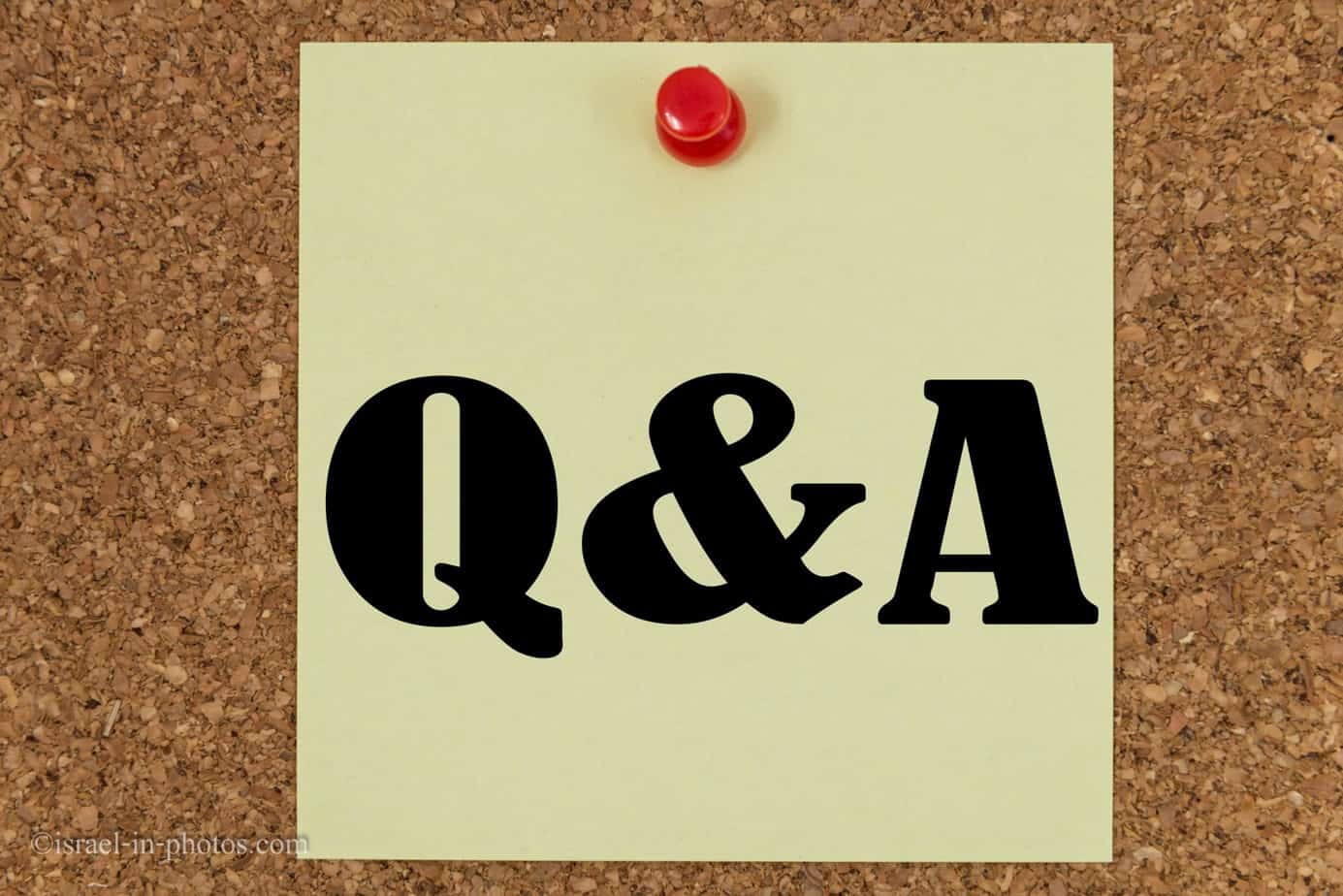
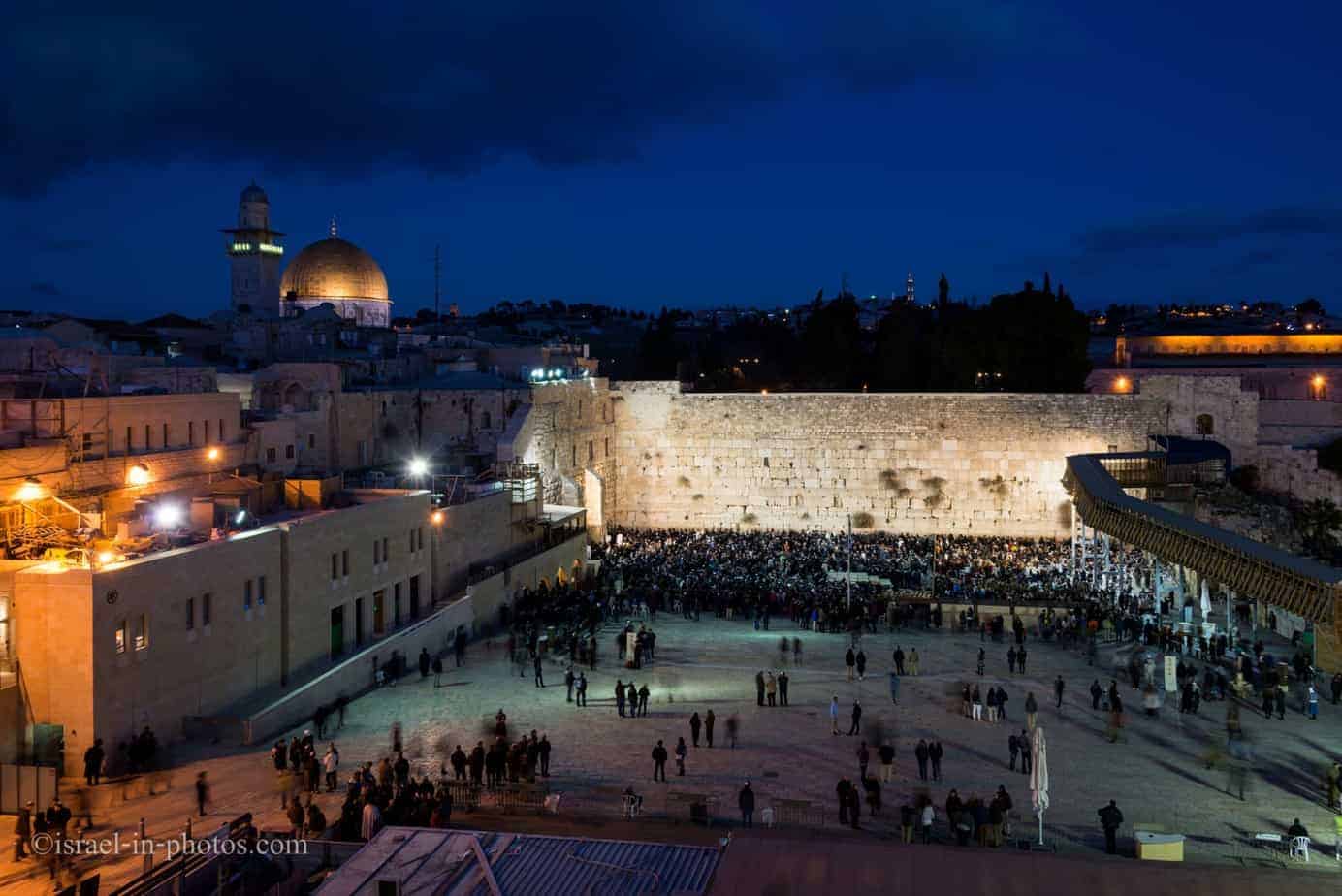
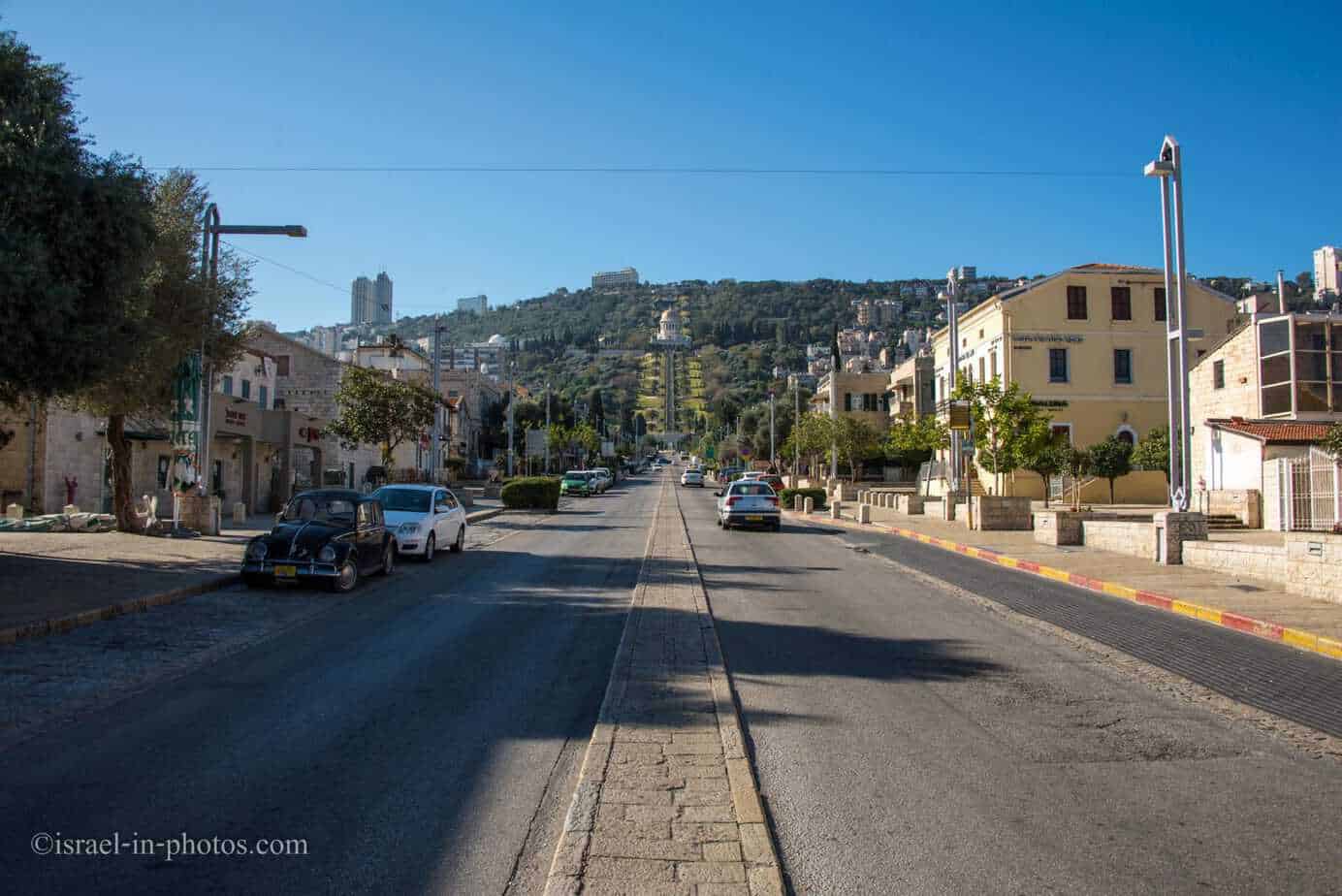

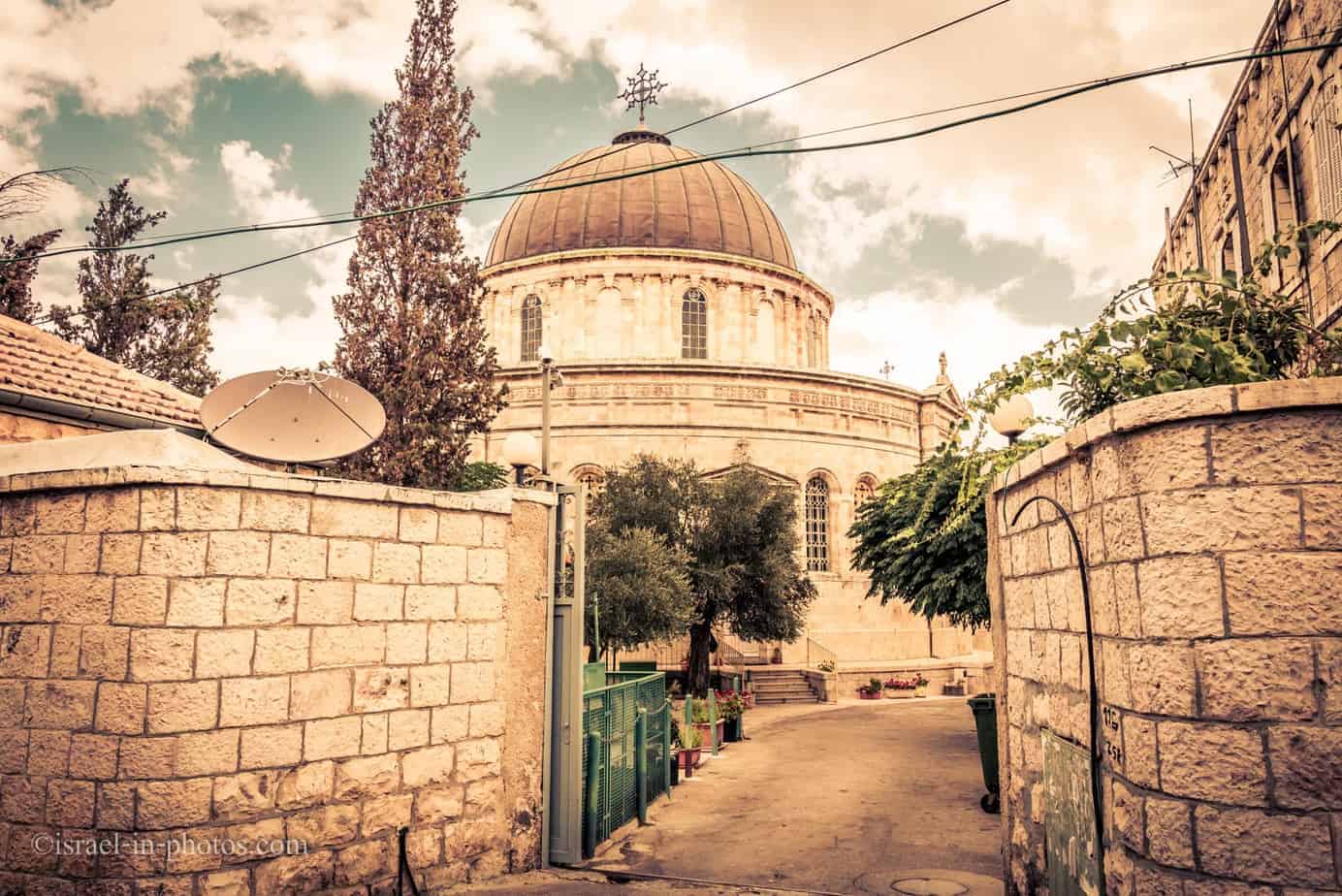


Thank you very much for the information
No problem, Daniel.
If you have any questions, let me know.
Congratulations on the publication! Great content!
I was there a few months ago and if something I have to highlight is the horrible traffic… By the way, I wanted to ask you a question. I am Spanish and I put the two parking tickets. Both are in Israeli, and up signals or any indication driving. They are fair? I can not afford them? And if you do not pay what would be the penalty? I'd appreciate any advice!
Greetings.
mother.
Hi Ana,
Yes, due to increasing density the traffic gets worse every year.
Usually, the tickets are fair, and you will probably have to hire a lawyer to prove otherwise. AFAIK, the percentage of unfair tickets (at least proven to be unfair) is low.
I am not a lawyer, so I cannot give legal advice, and I am not sure what would be the penalty if you don’t pay them.
I was in a similar situation only once in Switzerland, and the car rental company automatically deducted the fine from my credit card. And I guess you rented the car. Try to contact the car rental.